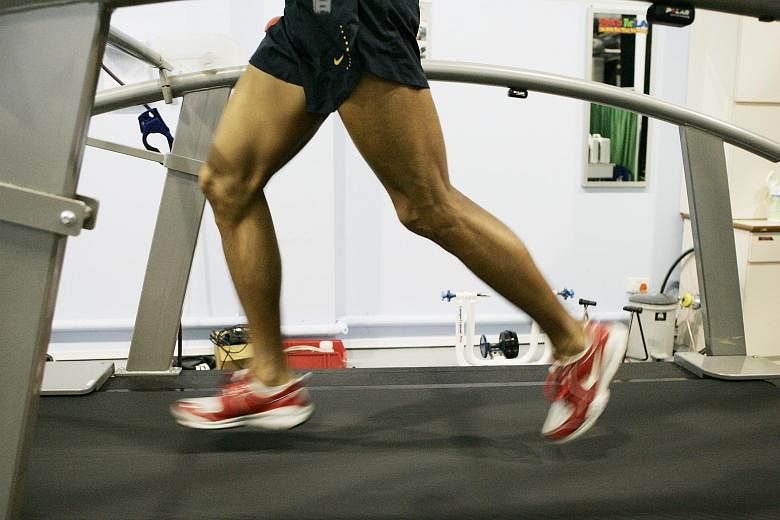Most running injuries involve the lower limbs, with the knee joint being the most commonly affected. These injuries are usually due to overuse, and this is related to the constant repetition of the same movement when one is running.
Occasionally, there may be an acute episode of trauma that worsens the injury.
The good news is that most of these injuries, like patellofemoral pain syndrome (or runner's knee), can be treated without surgery. Rest, a short course of painkillers and physiotherapy are often all that are required to get you back to running.
However, certain knee injuries may require surgical treatment, particularly when they cause persistent symptoms of pain, swelling and instability, which prevent one from running comfortably.
Radiological investigations, such as magnetic resonance imaging scans, are needed for the accurate diagnosis of these injuries, and further evaluation by an orthopaedic surgeon who specialises in sports and knee injuries is recommended.
One such injury is meniscus tears. The meniscus is a rubbery, C-shaped disc that cushions your knee. Each knee has two menisci - one at the outer edge of the knee and one at the inner edge. The menisci function as shock absorbers in the knee and also help to maintain stability within the knee.
A torn meniscus can cause pain and swelling that can significantly impair one's ability to run. Meniscus tears may therefore require surgical treatment in the form of arthroscopy, otherwise known as keyhole surgery, to repair the tear.
In some cases, the tear is not repairable and part of the meniscus may need to be trimmed or removed to alleviate the symptoms.
After the surgery, a rehabilitation programme supervised by a physiotherapist is crucial to enable the return to running.
Ligament injuries in the knee may also require surgical treatment. One of the most commonly injured knee ligaments is the anterior cruciate ligament (ACL), which runs diagonally in the middle of the knee.
It is an important ligament that provides rotational stability to the knee. Although it is not a common injury among runners, the ACL can be torn if the knee is subjected to an acute twisting injury while running on uneven ground or pivoting.
At the time of injury, there is often severe pain and significant swelling of the knee that can occur within minutes of the injury.
A pop is often also felt or heard.
ACL tears can give rise to symptoms of recurrent pain and instability in the knee, and may require surgical treatment in the form of ligament reconstruction surgery to restore stability and function to the knee.
A post-operative rehabilitation programme supervised by a physiotherapist is also required for an effective recovery and return to running.
Cartilage injuries can also affect one's ability to run. Cartilage refers to the rubbery cushion that covers and protects the surfaces of the knee joint.
Injuries to the cartilage can occur from both overuse and acute injuries, and they can cause pain, stiffness and swelling of the knee.
The spectrum of cartilage injuries can range from small, localised areas of damage to extensive areas of cartilage loss.
The surgical treatment of such injuries is therefore individualised.
For small areas of cartilage loss, arthroscopic surgery may be used to repair the damage by stimulating the formation of new cartilage.
Severe cases of cartilage damage may be associated with deformity or bowing of the knee. In such cases, an osteotomy (bone-reshaping surgery) is used to improve the overall alignment and shape of the knee.
Close cooperation between the individual, surgeon and physiotherapist is essential to ensure the success of surgery and in order to facilitate an effective return to regular running.
• Dr Lingaraj Krishnan is the director of the National University Hospital Sports Centre. He is also the head and senior consultant, division of sports medicine and surgery, department of orthopaedic surgery, NUH.


